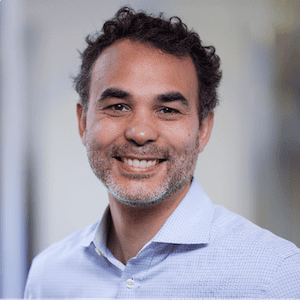-
The Millennial Employment Gap: Three Lessons Learned Supporting Young Entrepreneurs
Across Latin America, about 20 million young people are neither studying nor working. Helping them find economic opportunities is one of the region's top challenges - and entrepreneurship can help, since businesses with five employees or fewer generate 60 percent of the region’s jobs. TechnoServe discusses three effective approaches for supporting young entrepreneurs, learned through its Crece Tu Empresa (Build Your Business) program.
- Categories
- Uncategorized
-
Four Bottom-up Solutions to Strengthen Land Rights in Emerging Markets
On an estimated 70 percent of land in developing countries, people live without formal recognition of their property rights. Despite significant investment, big improvements in protecting the property rights of most citizens have not materialized. But several civil society and private sector organizations are working to address these gaps and ensure land rights for people most in need - and technology solutions are providing a blueprint. BRAC and Landesa explore four innovative approaches.
- Categories
- Agriculture, Technology
-
Toilet To Tap: Solving the Global Water Crisis With Wastewater
World Toilet Day is Nov. 19, and as it focuses global attention on how to improve sanitation and fight water scarcity, one somewhat uncomfortable solution is emerging: the re-use of wastewater. Of course, not everyone agrees with the methods, and the thought of "drinking human waste" isn't palatable. But thanks to rapid technological advancement and the growing recognition that waste can be profitable, the practice could finally be overcoming the "ick" factor to become an important strategy for solving the world’s water crisis.
- Categories
- Environment, Social Enterprise, Technology, WASH
- Tags
- waste
-
Beyond the Beach: Exploring Partnerships for Sustainable Tourism
According to the United Nations World Tourism Organization, tourism provides one in 10 jobs globally, and even more in developing countries. In the Caribbean, for instance, it directly or indirectly creates nearly one in every five jobs. The Conference on Jobs & Inclusive Growth: Partnerships for Sustainable Tourism will explore how tourism can "create good jobs, provide opportunities for inclusion and education, and assist in preserving cultural heritage and the environment." NextBillion will be a media partner at the event.
- Categories
- Uncategorized
-
Too Much Money Chasing Too Few Deals? Why the Creative Economy Could Be the Next Big Focus for Impact Investing
Even with the many diverse focuses of impact investing these days, something is missing, says Laura Callanan of Upstart Co-Lab. She argues that investors are overlooking the creative economy, and that the impact sector should focus its attention on art, design, music, entertainment, fashion, food and more – a global economy worth $2.25 trillion that's the source of 29.5 million jobs.
- Categories
- Investing
-
Making Tech Work: How Local Know-How Can Improve Digital Financial Inclusion Solutions in Challenging Markets
Technology can eliminate inefficiencies, collect valuable information and expand access to critical services. But technological solutions often replace indigenous, ad-hoc approaches which – though they may appear incomplete and messy – reflect the knowledge and relationships of the parties involved. Asa Nyaga at BFA explores how Farmerline, a Ghana-based tech company serving smallholders, aligned the product design of a new app with the ideas and understandings of its target users.
- Categories
- Agriculture, Finance, Technology
-
Reimagining Slums: Innovative Solutions to Bangladesh’s Urban Housing Dilemma
Bangladesh's housing deficit has quadrupled in the last decade and, in the absence of adequate measures, it is projected to increase to 8.5 million units by 2021. Due to extreme demand and lack of rent control in slums, housing prices are sky-high. BRAC's Asif Saleh and Mahira Khan say these challenges highlight an opportunity for testing out models for urban development that leverage government, private business and the development sector.
- Categories
- Investing, Uncategorized
-
How Latino Entrepreneurs Can Fight Intergenerational Poverty: The Impact of Retirement Plans
Hispanics in the United States have an estimated buying power of $1.4 trillion – about 10 percent of the country's buying power. Despite this economic clout, they lag behind in retirement savings. Traditionally, many have taken care of their elderly parents and, in turn, expect their children to do the same for them. Manuel Carvallo of Hispanic Wealth suggests it's time for the growing number of Latino entrepreneurs to take the lead by establishing retirement plans.
- Categories
- Uncategorized










